In recent years, Southeast Asia’s casino industry has experienced exponential growth, with more than 340 licensed and unlicensed casinos in operation by early 2022, the United Nations Office on Drugs and Crime (UNODC) said in a report in January. This followed a series of enforcement actions in Macau, the report explained, which were driven partly by efforts to tackle corruption, money laundering, and illegal capital outflows from mainland China.
Chau was arrested in November 2021 and sentenced to 18 years in prison in Macau in January last year. Chan was sentenced to 14 years, later reduced to 13 years, last April.
As a result of the clampdown, operators have been relocating from Macau to the special economic zones of Southeast Asia, the UNODC report said – as evidenced by a sizeable drop in the number of licensed junkets in Asia’s gambling capital, plunging from a high of 235 in 2014 to just 36 last year, with only 12 still thought to be in operation.
“Many illegal online casino[s] in Southeast Asia have diversified their business lines into cyberfraud operations, with extensive evidence of infiltration of organised crime within casinos and SEZs [special economic zones] for the purposes of concealing various illicit activities,” the UNODC report said.
On April 13, China’s Ministry of Public Security announced that 130 Chinese nationals had been extradited from Cambodia to Wuhan, capital of Hubei province, that day on suspicion of involvement in cross-border gambling and online fraud. They were the first batch of 670 Chinese suspects to be repatriated from the Southeast Asian nation, according to state broadcaster CCTV.
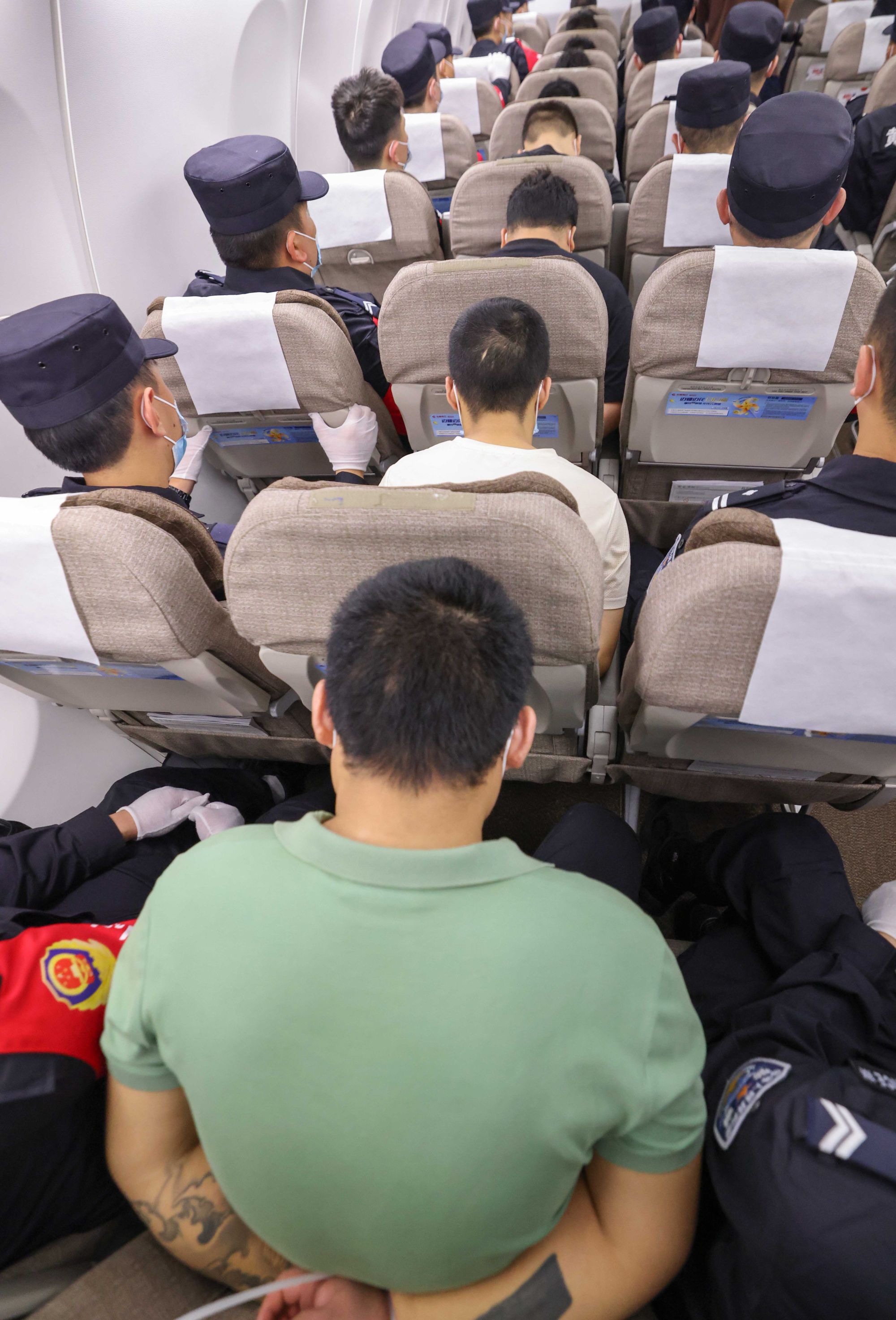
By a long strip of beach at the southern tip of Sihanoukville sits the former village of Otres, now rapidly being swallowed up by a development zone of sprawling casino complexes and walled-off compounds complete with their own flats, offices, supermarkets and other facilities.
“Pig butchering” scams, or sha zhu pan in Chinese, involve the perpetrator building a relationship, often romantic, with a victim over many months before convincing them to invest money into a fake venture – akin to fattening up, then slaughtering, a pig.
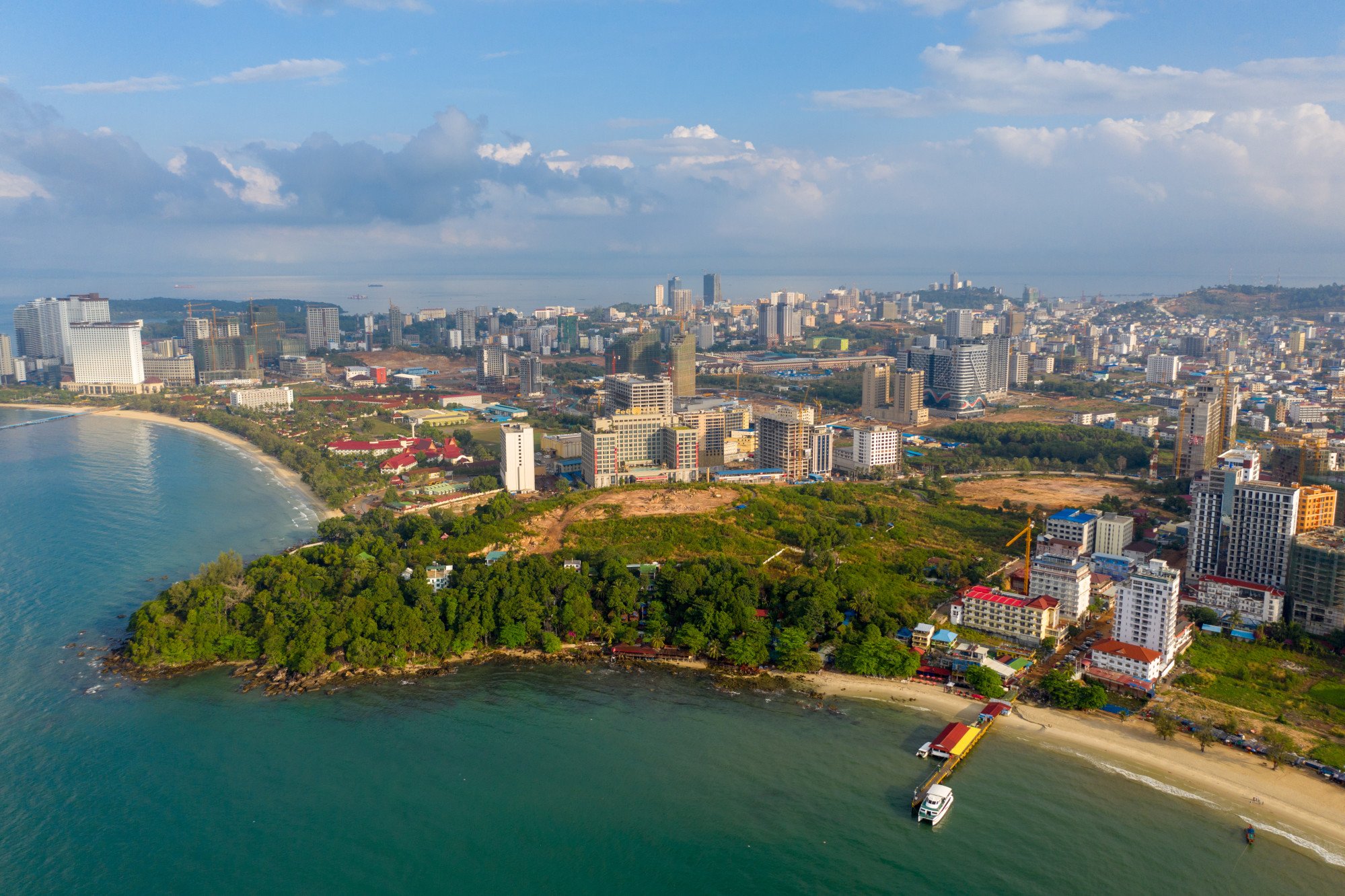
Before authorities finally began taking action in late 2022, Cambodia had become the “epicentre for trafficking” linked to online betting and cyberscams run by organised-crime, the Asian Racing Federation report said, with Sihanoukville’s special economic zone, in particular, being “extremely popular” for its low taxes and easily obtained casino licences.
“This transformed the beachside town, and by early 2019, there were close to 100 casinos; huge, often poorly regulated construction projects; and a massive influx of mostly Chinese people, 500,000 at the peak,” it said, adding that many of the casinos were being run by criminals previously convicted of illegal betting in China.
Illegal betting and cyber fraud are big business for the scam syndicates, which rake in an estimated US$40 billion to US$100 billion per year from their operations in Cambodia, the Philippines, Laos and Myanmar, according to the report, with as many as 250,000 people thought to be working in the underground industry – often against their will – across those four nations alone.
Beijing’s assessment puts the figures even higher, with an estimated 5 million people believed to be involved in the sector as of 2020 and US$157 billion in capital outflows from China reported by the Chinese government, the UNODC report said.
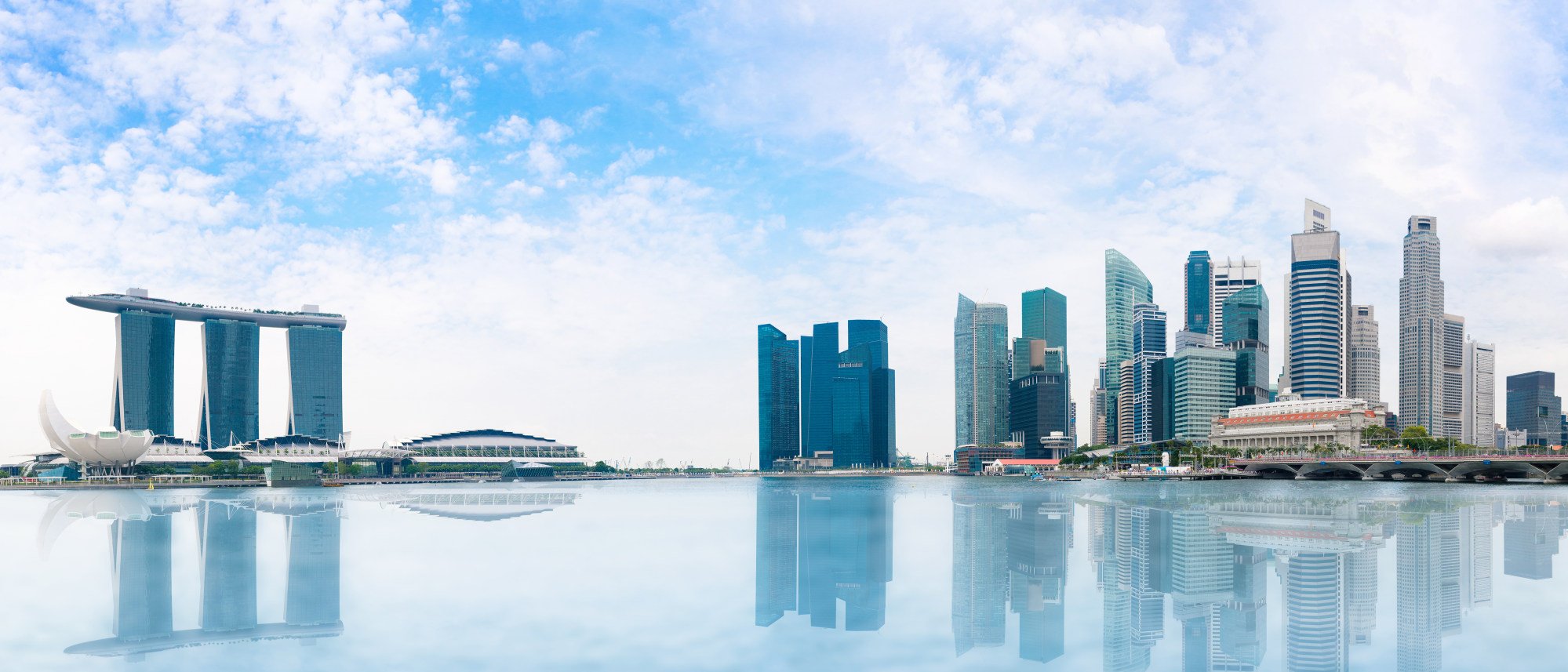
Turning the tide of dirty money
Singapore currently holds the presidency of the main international organisation that works to combat money laundering, the Financial Action Task Force (FATF), which has had Singaporean T. Raja Kumar as its president since July 2022.
Under his tenure, which lasts until June 30 this year, the FATF has made depriving criminals of the proceeds of crime a priority – with the organisation agreeing in October on amendments to its guidelines that aim to “provide countries with a much stronger toolbox” for asset recovery.
It also launched a new initiative focused on countering illicit financial flows from cyber-enabled fraud – including money laundering – in partnership with Interpol and the Egmont Group, an international network of financial intelligence units working together to combat economic crimes.
‘Golden’ passport and visa programmes … are being exploited by criminals and the corrupt who want to launder their money
“Criminals are taking advantage of social media and messaging platforms to recruit money mules across borders at scale,” the FATF said in a November report about the new initiative.
“Virtual services, such as remote online account opening, also allow criminals to easily set up foreign accounts and launder proceeds abroad, with financial transactions being executed at near-instantaneous speeds.”
Also in November, the FATF released a report about the “misuse of citizenship and residency” that called on governments operating so-called golden passport or visa programmes to implement safeguards.
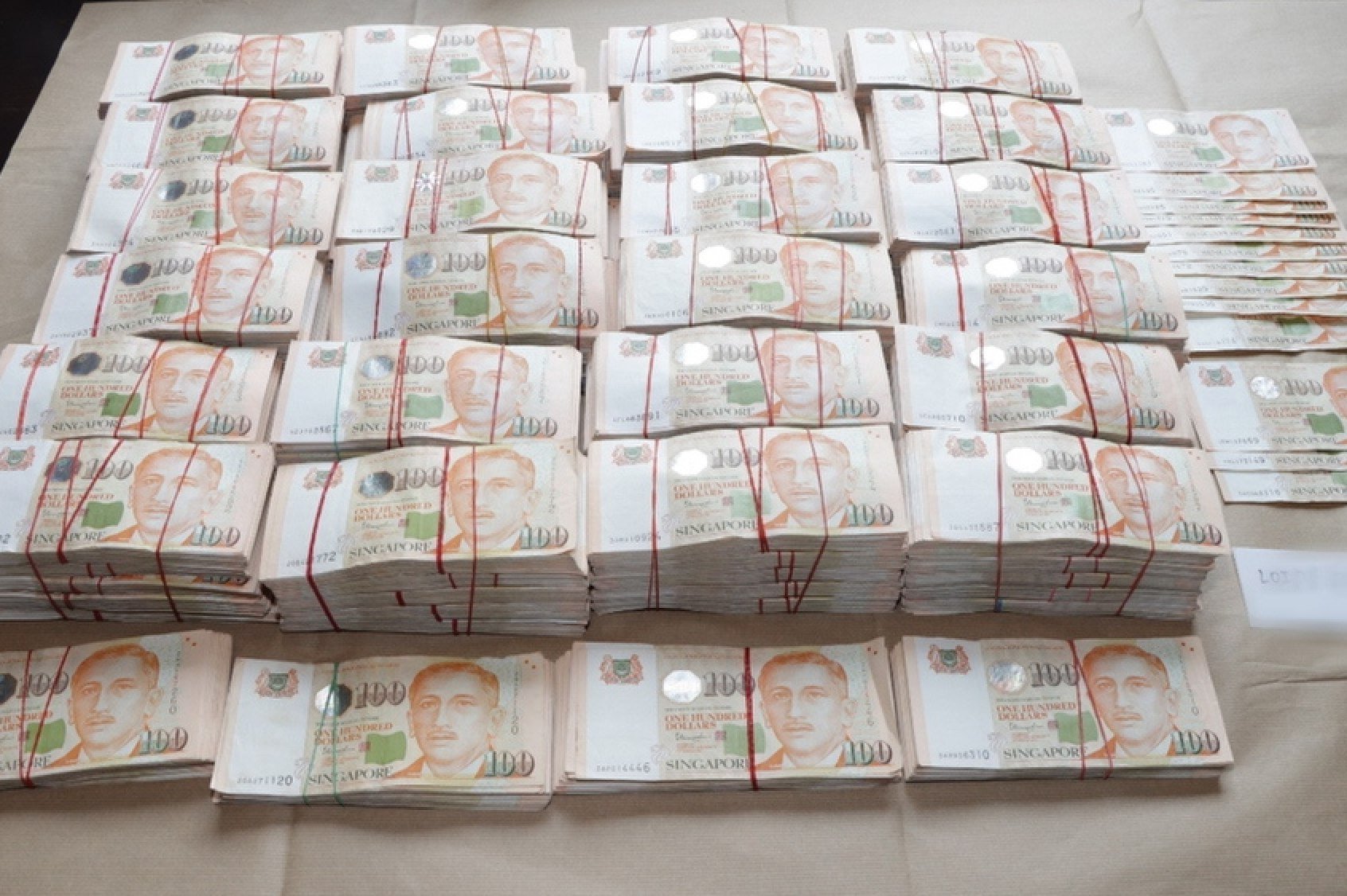
“Granting citizenship and residency to wealthy investors through ‘golden’ passport and visa programmes can potentially lead to economic growth,” Kumar, the FATF president, said in a November press release.
“But they can and are being exploited by criminals and the corrupt, who want to launder their money, hide their identity and assets, or carry out further crimes.”
Risk mitigation consultancy Steve Vickers and Associates is currently working with international financial institutions across the region, including in Singapore, to help them avoid exposure to organised crime activity and dirty money coming out of mainland China, CEO Vickers said.
“The current financial climate and [Chinese] government crackdowns are very intense,” he said.
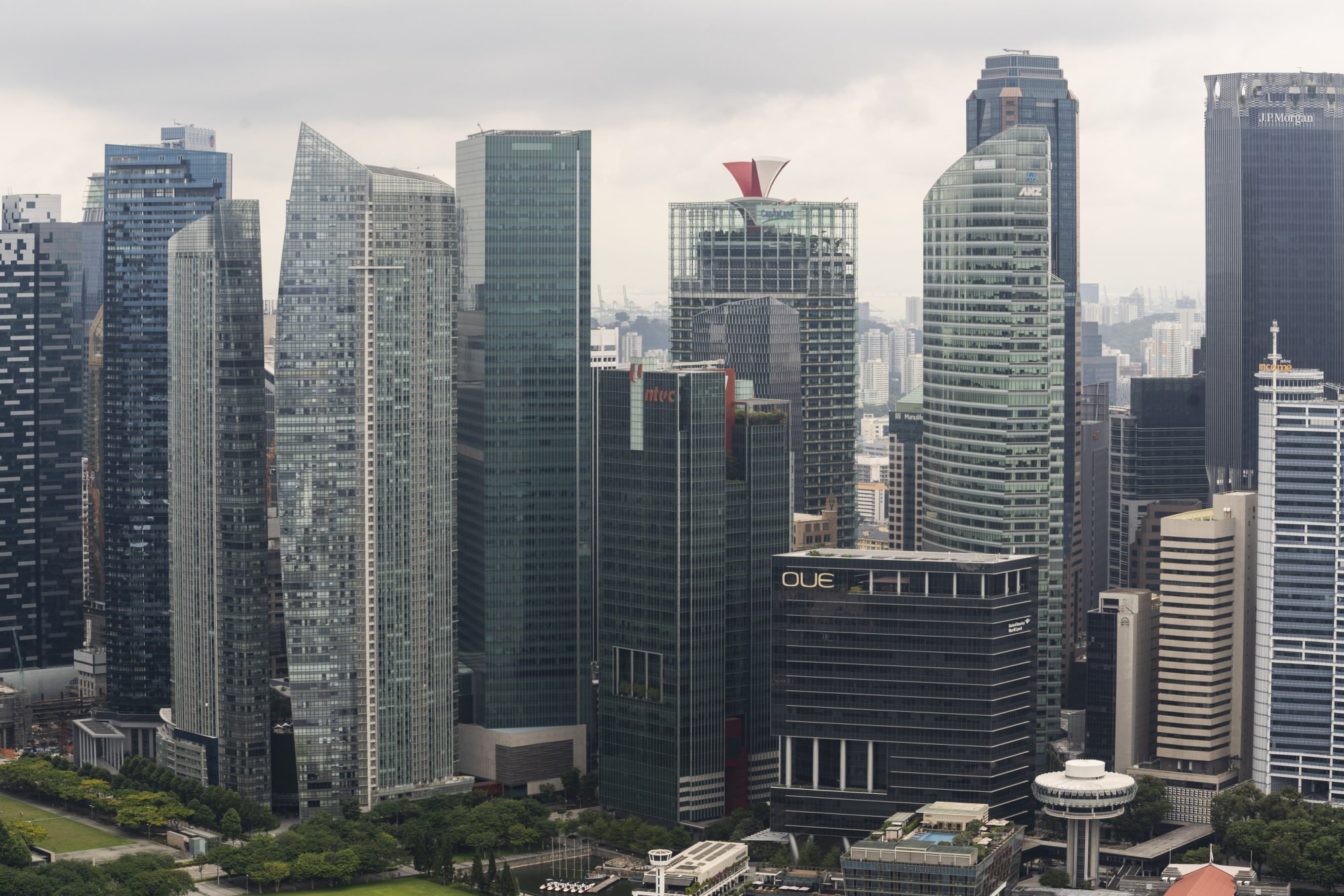
“Singapore has certainly stepped up anti-money-laundering activity and the cases they have brought are substantial,” said Vickers, noting that the city state had wanted to “make a solid demonstration” of capability and action.
“A combination of negative economic issues in mainland China plus anti-corruption and anti-capital outflows enforcement has played a role also.”
Dentons Rodyk, one of Singapore’s largest law firms, is among those in the city state busy helping Chinese family offices address regulatory concerns and prove their money is clean.
“There has been increased regulatory scrutiny, not only on the source of funds and source of wealth, but also on the background of the applicants and investment professionals, as well as the family office structures,” said Loh Kia Meng, chief operating officer and a senior partner at Dentons Rodyk.
Singapore’s banking giants embroiled in massive money-laundering scandal
Singapore’s banking giants embroiled in massive money-laundering scandal
“As a responsible financial institution, we are fully committed to ensuring compliance with supervisory and regulatory requirements,” it said, including through the “use of data analytics and technology solutions to fight against money laundering”.
But this increased scrutiny raises a growing concern: that just as the crackdown on junkets in Macau drove illicit gambling operators to scatter across the loosely regulated special economic zones of Southeast Asia, Singapore’s anti-money-laundering efforts risk triggering a similar migration of criminal proceeds.

